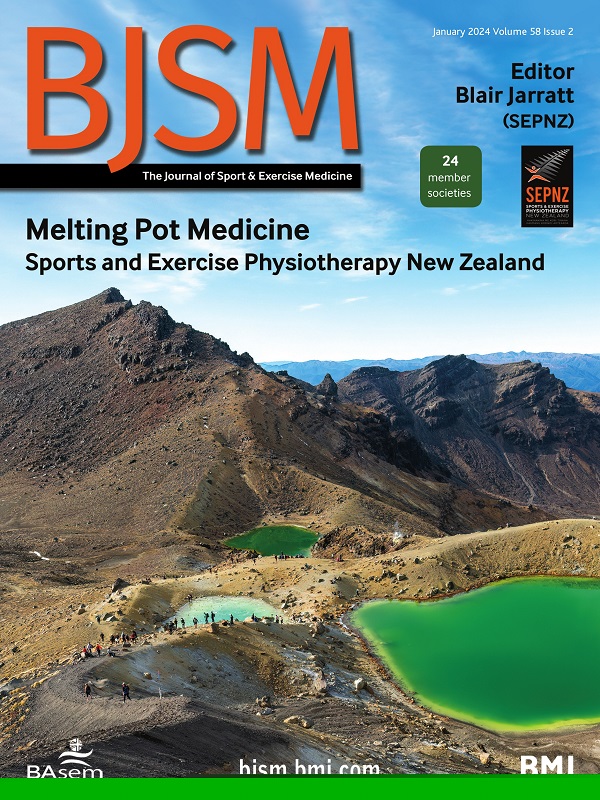Recommendations for cardiac screening and emergency action planning in youth football: a FIFA consensus statement
IF 16.2
1区 医学
Q1 SPORT SCIENCES
引用次数: 0
Abstract
Sudden cardiac death is the leading medical cause of death among football players. Determining the optimal cardiac screening, the use of carefully selected medical assessments to detect underlying cardiovascular conditions associated with sudden cardiac arrest/death, is a desired objective of the Fédération Internationale de Football Association (FIFA) for football players of all ages. To date, cardiac screening recommendations in football have primarily focused on adult competitive players. Acknowledging its responsibility for player health worldwide, FIFA convened an international working group of cardiology and sports medicine experts to develop cardiac screening recommendations for youth football players. This group performed structured literature reviews and ultimately congregated in January of 2024, when recommendations were presented, scrutinised and judged using a systematic process. The final FIFA recommendations for youth cardiac screening include personal medical history, family medical history, focused physical examination and resting 12-lead electrocardiography. This document provides detailed rationale and clinical recommendations for youth cardiac screening and emphasises the importance of emergency action planning.关于青少年足球运动中心脏检查和紧急行动计划的建议:国际足联共识声明
心脏性猝死是足球运动员死亡的主要医学原因。确定最佳心脏筛查,即使用精心挑选的医疗评估来发现与心脏骤停/死亡有关的潜在心血管疾病,是国际足球协会(国际足联)对所有年龄的足球运动员的一个理想目标。迄今为止,在足球中心脏筛查建议主要集中在成年竞技球员。国际足联承认其对全球球员健康的责任,召集了一个由心脏病学和运动医学专家组成的国际工作组,为青少年足球运动员制定心脏筛查建议。这个小组进行了结构化的文献综述,并最终于2024年1月聚集在一起,提出了建议,并通过一个系统的过程进行了审查和评判。国际足联对青少年心脏筛查的最终建议包括个人病史、家族病史、重点体检和静息12导联心电图。本文件为青少年心脏筛查提供了详细的理论依据和临床建议,并强调了应急行动计划的重要性。
本文章由计算机程序翻译,如有差异,请以英文原文为准。
求助全文
约1分钟内获得全文
求助全文
来源期刊
CiteScore
27.10
自引率
4.90%
发文量
217
审稿时长
3-8 weeks
期刊介绍:
The British Journal of Sports Medicine (BJSM) is a dynamic platform that presents groundbreaking research, thought-provoking reviews, and meaningful discussions on sport and exercise medicine. Our focus encompasses various clinically-relevant aspects such as physiotherapy, physical therapy, and rehabilitation. With an aim to foster innovation, education, and knowledge translation, we strive to bridge the gap between research and practical implementation in the field. Our multi-media approach, including web, print, video, and audio resources, along with our active presence on social media, connects a global community of healthcare professionals dedicated to treating active individuals.

 求助内容:
求助内容: 应助结果提醒方式:
应助结果提醒方式:


